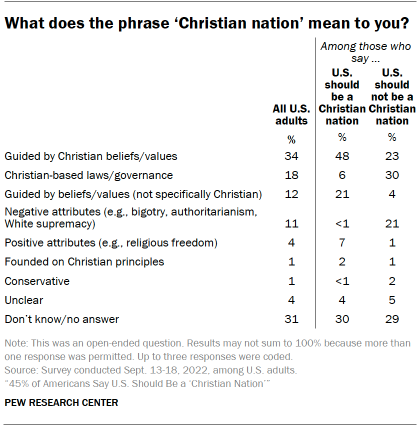Quote:
You get defensive at the oddest times. You've claimed this was a Christian nation at the founding and that the framers were thinking predominantly of Christian denominations when they thought of religious pluralism. You have claimed at other times that the foundation of our laws is Christianity. That without Christianity we don't have the laws we currently have.
how could anyone seriously dispute that the United States was a Christian nation at its founding?
how could anyone seriously dispute that the foundation of the moral framework of our laws is Christian?
Quote:
It certainly seems that you're either positing Christians as the historically preferred people in this society or engaging in some form of thought experiment where that is the case. But I can't read your mind. I'm going off what evidence you've presented.
that is a complete non-sequitur, and there is nowhere that makes that jump in what i wrote. i already clarified it twice - the states people are their body politic, not some subgroup of their population.
there's no way to go from "is it bad for any state to have preferential treatment for, or favor their people versus other people" to "are christians the US preferred people?"
"preferred people" was completely your fabrication. let it go.
Quote:
Historically very little aside from racial bigotry has defined citizenship in this country. States were allowed to define their own voters and citizens and national citizenship had very low bars to meet. Usually five years of residency. The higher bars and barriers to citizenship began in the 1920s and were explicitly racist and xenophobic in origins, coming at the same time as the second Klan and the first Red Scare. So as for why we have such high bars on citizenship, it's a holdover from fears of "them" flooding our borders. I'm not trying to suggest all boundaries on citizenship are bad or racist, but you can't assume there isn't an aspect of the irrational or the hateful to these discussions of why we have in-groups and out-groups.
nowhere did i ask for a brief history and moral commentary on citizenship requirements. nor did I ask why bars on citizenship should be "high".
in your rush to moralize you completely failed to address the point. i asked why they should exist at all.
what makes a US person worthy of different protection from another person? in this case the in group and out group is a US citizen vs non-citizen (of any race, tribe, ethnicity, creed, faith, country of origin, sex, gender, or any other intersectionality you can come up with).
if it is wrong or bad to a state to favor one group of its citizens over another, why isn't it also wrong or bad for a state to treat any person differently from any other regardless of their citizenship status?
in the end you just get one arbitrary subdivision for consensus versus another, one tribe for a new one. its either all wrong or it is all just pragmatic reality of "the majority is favored by laws reflecting their preferences".


